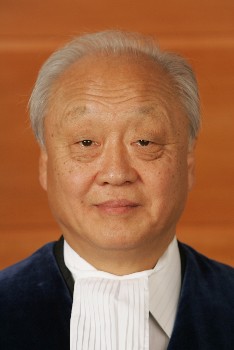
Shunji Yanai, former Japanese ambassador to the United States and current judge at the International Tribunal for the Law of the Sea, offers some radical measures to help university students bring their English communication skills up to speed.
Writing in the July 21 evening edition of the Nikkei Shimbun, he explains that when he first started teaching at a university after retiring as a diplomat, he was asked to help lead extracurricular study sessions for students.
Though his students could read English fairly well, he soon became painfully aware of their poor conversational English. Typically, he blamed Japan’s education system for emphasizing test preparation over actual communication skills.
Out of a concern for their futures as global citizens, Yanai came up with the following crash course to whip the students into shape:
- Memorize and recite US presidents’ political speeches: He made all his students memorize a speech word for word and recite it in front of the group. The variety of sentence structures in each speech helped with conversational skills and composition, while speaking at length trained their mouth muscles to speak in English.
- Memorize jazz standards and listen and sing along to the songs at live performances: He took some of his students to jazz bars and pays for their drinks… on the condition that they memorize the lyrics ahead of time. Singing along to the songs with some drinks in them, he claims, helped students start speaking more fluently.
- Place a digestive pill in your mouth to help learn how to pronounce R’s differently from L’s: Japanese people grow up without using the English L and R sounds in their everyday lives – the sounds in standard Japanese that are written with a letter “R” in English are actually pronounced with a sound that’s somewhere between the L in “la” and the “D” in “dog.” To fix that problem, Yanai had students practice saying R words with a pill of biofermin digestive medicine in their mouths. The weight of the pill kept their tongues from hitting the roofs of their mouths, which would result in a mistaken L sound.
Now, I seriously doubt Yanai ever used these methods on himself. As a former diplomat he has presumably gone through the foreign ministry’s rigorous language training. As far as I can tell from the diplomats I have met over the years, this training is highly effective – every Japanese diplomat I’ve met has spoken very good, fluent English. If this is because of days spent with pills in their mouths, I would be very surprised.
I am far from an expert in English teaching methods, but I can’t help but question this plan’s effectiveness. Can a strict regimen of memorizing speeches and jazz songs, recitation, and jury-rigged palate correction do what commitment, good guidance, and more traditional practice cannot?

